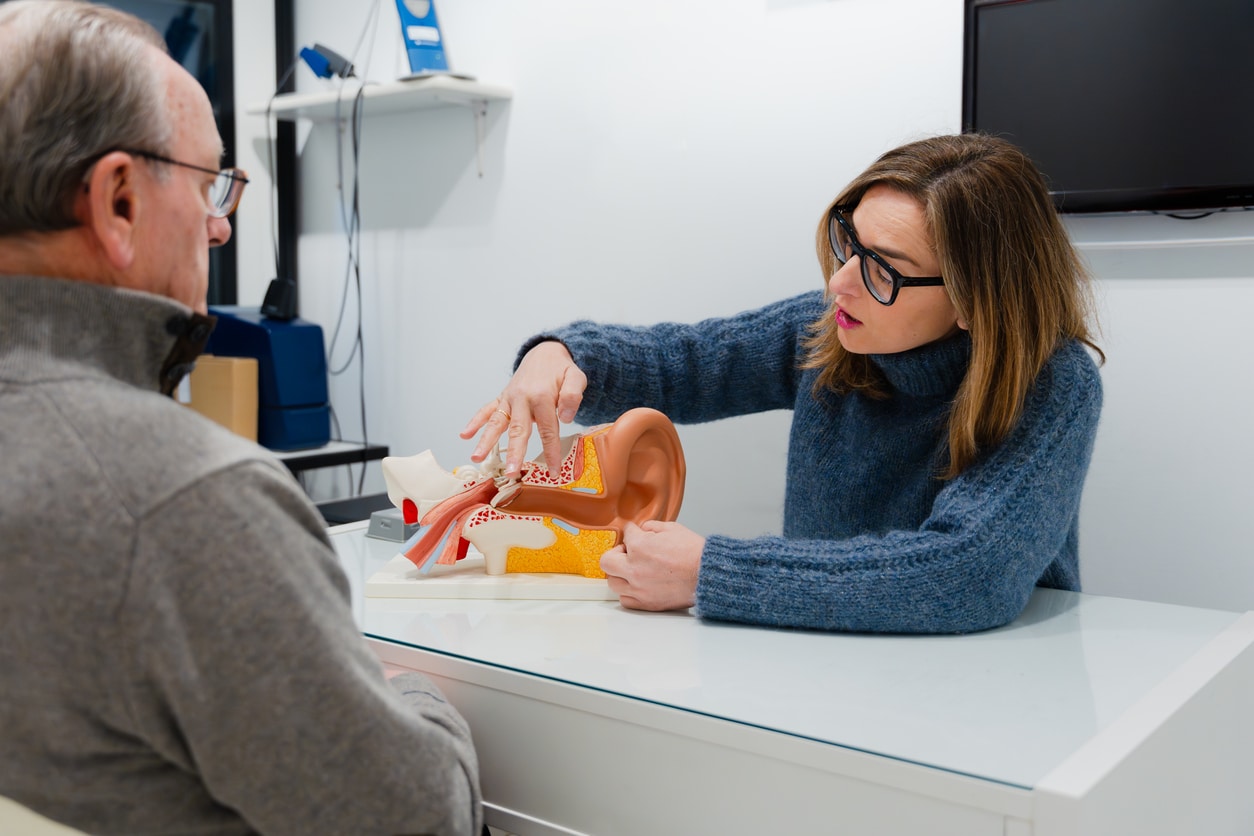Approximately one in 10 people in the United States live with some degree of hearing loss. For some, this might mean occasionally struggling to hear in noisy environments. For others, it can significantly hinder their ability to communicate with those around them, regardless of the setting. No matter the severity, addressing hearing loss is essential for improving your quality of life.
Many people delay seeking treatment for hearing loss. While it may seem easier to ignore it, untreated hearing loss can lead to several serious side effects, including:
- Feelings of loneliness. A 2022 study revealed a significant link between hearing loss and increased emotional loneliness and psychological discomfort.
- Faster brain atrophy. A Johns Hopkins study of 639 adults over 12 years found that untreated mild hearing loss doubles the risk of developing dementia, highlighting the importance of early treatment. This increased risk of cognitive decline is likely due to a lack of auditory stimulation, which causes the brain’s auditory center to atrophy faster.
- Decreased safety awareness. Hearing plays a crucial role in maintaining awareness of your surroundings, from hearing traffic to responding to warnings. Untreated hearing loss can compromise your safety by dulling these critical alerts.
How Can Hearing Loss Treatment Help?

Your provider may recommend hearing aids, cochlear implants, surgery or therapy depending on your type, degree and cause of hearing loss. A few benefits of hearing loss treatment include improved social interactions, decreased risk of cognitive decline and better safety and independence. Let’s look at each of these benefits a little more in-depth.
Improved Social Interactions
Hearing loss treatment offers you the improved clarity you need to enjoy time with your friends, family and coworkers. You can feel free to enjoy dinners, park days and afternoon chats at Cuvee Coffee Bar without worrying that you’re missing important words or phrases.
Improved Cognitive Health
Just as your muscles require exercise to keep them strong, your brain needs stimuli to stay healthy and active. Hearing aids and cochlear implants provide necessary auditory stimuli, helping to prevent brain atrophy. A 2023 study found that hearing aids can reduce the risk of dementia by almost 50% over three years.
Increased Safety Awareness
By amplifying background sounds, hearing aids help you stay aware of your surroundings. With better background awareness, you can enjoy your independent life without concern for your safety.
The adverse effects of untreated hearing loss are significant, but seeking treatment early can dramatically improve your quality of life. Whether you’re living with mild or profound hearing loss, contact River ENT today to talk to one of our experts about your treatment options.